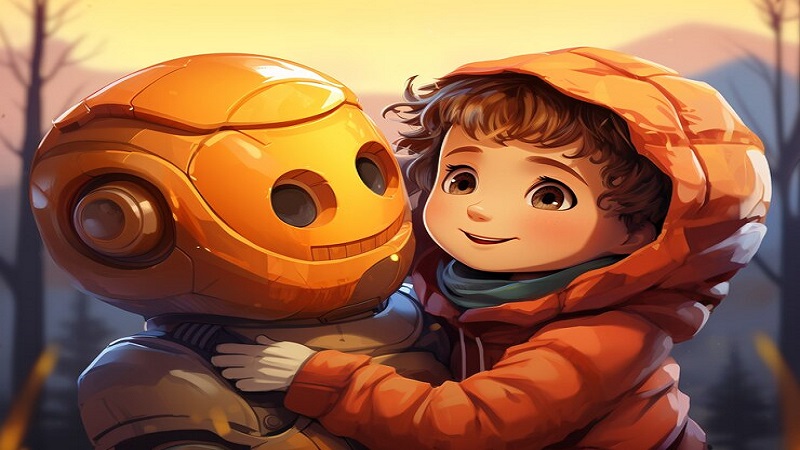Introduction
Pikachu, the electric mouse Pokémon, is one of the most recognizable and beloved characters in the Pokémon franchise. As the franchise’s mascot, Pikachu has achieved a level of fame and influence.
That extends beyond the world of video games and animation. This comprehensive overview will delve into Pikachu’s origins, characteristics, role in the Pokémon series, and its cultural impact.
Origins of Pikachu
Creation and Design
Pikachu was created by Satoshi Tajiri and Ken Sugimori, two key figures behind the Pokémon franchise. The Pokémon franchise, developed by Game Freak and published by Nintendo and The Pokémon Company, first appeared in 1996.
The name “Pikachu” is a portmanteau of the Japanese words “pika,” a sound an electric mouse makes, and “chu,” the sound a mouse makes. This combination reflects Pikachu’s electric nature and rodent-like appearance.
Early Appearances
Pikachu first appeared in the Pokémon Red and Green video games released in Japan in 1996. In these games, Pikachu is a part of the original 151 Pokémon species, and it quickly became a fan favorite due to its adorable appearance and unique electric abilities.
Characteristics of Pikachu
Physical Appearance
Pikachu is a small, yellow Pokémon with large, pointed ears and red cheeks that store electricity.Pikachu’s appearance is designed to be both cute and approachable, making it appealing to a wide range of audiences.
Abilities and Powers
Pikachu is an Electric-type Pokémon, known for its ability to generate and discharge electricity. Its signature move is “Thunderbolt,” a powerful electric attack that can paralyze its opponents. Pikachu also has access to other electric moves such as “Thunder” and “Quick Attack.”
In the Pokémon games, Pikachu can evolve into Raichu when exposed to a Thunder Stone, although its evolution can be optional depending on the player’s choice.
Personality Traits
Pikachu is often portrayed as cheerful, energetic, and friendly. It has a strong sense of loyalty and is known for its bond with its trainer, Ash Ketchum, in the Pokémon anime series. Pikachu’s personality and behaviors are designed to endear it to fans and create a strong emotional connection.
Pikachu in the Pokémon Anime
Introduction to the Anime Series
Pikachu gained widespread recognition through the Pokémon anime series, which premiered in Japan in 1997 and later became popular worldwide. In the anime, Pikachu is the primary companion of the protagonist, Ash Ketchum. This depiction solidified Pikachu’s role as the franchise’s mascot.
Pikachu’s Role in the Series
Pikachu’s relationship with Ash is central to the series, showcasing themes of friendship, teamwork, and growth. Pikachu’s personality and abilities play a crucial role in the success of Ash’s journey as a Pokémon Trainer.
Notable Episodes and Moments
Several episodes and moments featuring Pikachu have become iconic within the Pokémon series. For instance, the episode “Pikachu’s Goodbye” is a memorable and emotional episode where Pikachu considers leaving Ash to live with other Pikachu in the wild. Another notable moment is Pikachu’s battle against legendary Pokémon, which showcases its strength and determination.
Pikachu in Pokémon Games
Video Games
In the Pokémon video games, Pikachu has been a central character since the release of Pokémon Red and Blue. It is available in various game titles, including Pokémon Yellow, where Pikachu follows the player character, mimicking the anime’s depiction of the Pokémon. Pikachu is also featured prominently in spin-off games like Pokémon Mystery Dungeon and Pokémon Snap.
Pikachu’s Unique Appearances
Pikachu has appeared in various special editions and games, including Pokémon Go and Pokémon Unite. In Pokémon Go, Pikachu is a common catch and has several special costumes and forms, making it a favorite among players. In Pokémon Unite, Pikachu is a playable character, showcasing its abilities in a multiplayer online battle arena setting.
Pikachu’s Merchandise and Spin-offs
Pikachu’s popularity has led to a vast array of merchandise and spin-offs. From plush toys to clothing and accessories, Pikachu’s image is used extensively to market Pokémon products. Additionally, Pikachu has starred in its own games, such as “Detective Pikachu,” where it plays the role of a talking detective solving mysteries.
Cultural Impact of Pikachu
Global Popularity
Pikachu’s influence extends far beyond the Pokémon franchise. As a cultural icon, Pikachu has become a symbol of Japanese pop culture and has gained international recognition.
Pikachu in Popular Media
Pikachu has appeared in various forms of popular media, including the Pokémon movies. The most notable film is “Pokémon: Detective Pikachu,” released in 2019, which features Pikachu as a talking detective. The film received positive reviews and further cemented Pikachu’s place in global pop culture.
Pikachu in Public Events and Promotions
. In Japan, Pikachu has been a part of large-scale events such as the Pokémon Center’s Pikachu Outbreak Festival, where thousands of Pikachu mascots gather to celebrate.
Pikachu’s Role in the Olympics
In 2021, Pikachu was part of the Tokyo 2020 Olympics, where it appeared in the opening ceremony as a representative of Japanese pop culture. Pikachu’s involvement in such high-profile events highlights its significance as a global cultural icon.
Conclusion
Pikachu’s journey from a video game character to a global icon is a testament to its enduring appeal and influence. As the face of the Pokémon franchise, Pikachu has captured the hearts of fans around the world with its charming appearance, dynamic abilities, and memorable role in the anime series. Its impact on popular culture is profound, making it a beloved symbol of both nostalgia and ongoing enjoyment for millions of fans.
From its early days in the Pokémon games to its role in various media and events, Pikachu continues to be a vibrant and essential part of the Pokémon universe. Its legacy is not just a reflection of its role in the franchise but also a celebration of the universal appeal of animated characters and the joy they bring to audiences of all ages.
